What does orange juice and job searching have in common?
A lot, actually.
I was in the grocery store last week looking for orange juice.
I went to the case and counted 6 brands and at least 20 differ ent types of orange juice. There was pulp-free, some pulp, extra pulp, calcium enriched, organic, extra vitamin c, concentrated, fresh squeezed, no acid, homestyle, country style and on and on. The same thing can be said about every other common grocery product: peanut butter, spaghetti sauce, potato chips, coffee, breakfast cereal, diapers, etc..
ent types of orange juice. There was pulp-free, some pulp, extra pulp, calcium enriched, organic, extra vitamin c, concentrated, fresh squeezed, no acid, homestyle, country style and on and on. The same thing can be said about every other common grocery product: peanut butter, spaghetti sauce, potato chips, coffee, breakfast cereal, diapers, etc..
It wasn’t until the early 70’s that marketing professionals determined that instead of promoting and marketing a single product based on a single brand, it was way more profitable to offer a wide variety of that single product to try and suit the wide diversity of tastes, likes and preferences of all consumers.
They figured out that every individual has different tastes and likes and we also have individual ‘consumer codes’ that determine how we respond to a product. What about a particular product is going to resonate with a consumer that will enhance the chances that they will purchase that product?
For example what gives a consumer comfort when they see a jar of ‘country style’ peanut butter? Or why would one consumer purchase ‘vitamin enhanced’ lemonade over ‘southern style?’ In each case, the company has done a remarkable amount of research to make either an emotional or intellectual connection that will convince you to purchase their product.
‘Country style’ might bring back your memories as a child growing up on a farm. ‘Vitamin enhanced’ might make you believe that you are getting a health benefit from consuming the product. I’ve been eating Cheerios since I was seven-years-old. I have a ‘comfort’ code with Cheerios.
So what does this have to do with job hunting?
There’s a lot of talk about ‘personal branding’ when looking for a job. In short, the idea is to consider a job seekers as a marketable product who are highlighting their competitive differentiators in their attempt to land the job; ‘a product’ that an employer is comparing to others to determine whether you are the best fit for their company.
Here’s how the orange juice analogy applies to job seeking.
In much the same way that marketers are appealing to our hard-to-define love for calcium-enriched orange juice, as job seekers/marketers, we are now responsible for identifying and highlighting the unspoken qualities and requirements that an organization is looking for in a new employee. In other words, it is your challenge and responsibility to ‘break’ that code.
Here’s an example of how this works.
When I was the head of communications and marketing at Frontier Airlines, our internal communications manager announced that she was moving on. This created a huge level of anxiety for my department and at it could be argued amongst the Frontier employees as a whole.
Frontier’s internal culture thrived in large part because of her efforts; she had single-handedly created and nurtured this department over the course of many years and developed a huge level of trust and credibility with Frontier’s employees at every level which proved to be incredibly beneficial to the organization.
In the coming weeks, we prepared a job description we believed best represented the qualities that best fit the position. The person we were looking for would demonstrate they could interact easily amongst all levels of employees: with top management as well as the mechanics, flight attendants, aircraft cleaning crews, and everyone in between. They would be someone who had a high level of confidence and creativity and a strong demeanor that exuded empathy, a commitment to internal customer service and clarity. We were also looking for someone who had taken the time before the interview to understand Frontier’s workplace culture and could demonstrate how their background and as important, their personality ‘fit’ that culture.
I developed an interview team of four people and we interviewed almost 15 finalists, including internal candidates. While we met with some incredibly talented people who had expertise and experience, but, frustrated, the team still didn’t feel as if we had found the exact right person.
It was perhaps unfair – I mean how do you ‘clone’ someone? But that is exactly what we were attempting to do.
Ultimately, the person we hired broke the code for this position and gave the team the big sigh of relief we had been looking for. She met the prerequisite qualifications, but most importantly, in the interview, she clearly demonstrated that she had researched Frontier’s culture and came prepared to show how her background, coupled with her personality, would make her a perfect fit. The interview was relaxed and instead of simply responding to our questions, she engaged and interacted with the interview team and gave concrete examples of how her past experiences were relevant to the Frontier positing she was interviewing for. She delivered on the exact right ingredients of confidence, empathy, customer service and clarity.
In this case, the code was comfortable and secure.
As I stated, we were anxious about this position and we needed someone who could give us something we were used to. We wanted a person who could relatively seamlessly walk into this position to replace a person who was trusted and valued and someone who could immediately fit into the team.
What are other codes?
There is always a code in a job positing you are trying to break; something that will give the hiring employer that ‘sigh of relief’ when you leave the room after your interview.
In the sense that the successful person for the Frontier position was able to break our code of ‘comfortable and secure’, other job postings have their own codes, many times which have nothing to do with the basic qualifications.
Think about it. A company is looking to replace someb ody who was not so well-liked. The code is ‘different and fresh’. Or a company is looking for someone to lead a department. The code might be ‘charismatic and visionary’. In another case, it might be a new position that has never existed whereas the code might be ‘trust, demonstrated results, industry knowledge’. In each case, these codes are above and beyond what the basic qualifications and criteria that are listed in the job posting.
ody who was not so well-liked. The code is ‘different and fresh’. Or a company is looking for someone to lead a department. The code might be ‘charismatic and visionary’. In another case, it might be a new position that has never existed whereas the code might be ‘trust, demonstrated results, industry knowledge’. In each case, these codes are above and beyond what the basic qualifications and criteria that are listed in the job posting.
Later this week, I’ll post an article, “Five things you can do to break the job posting code.”










